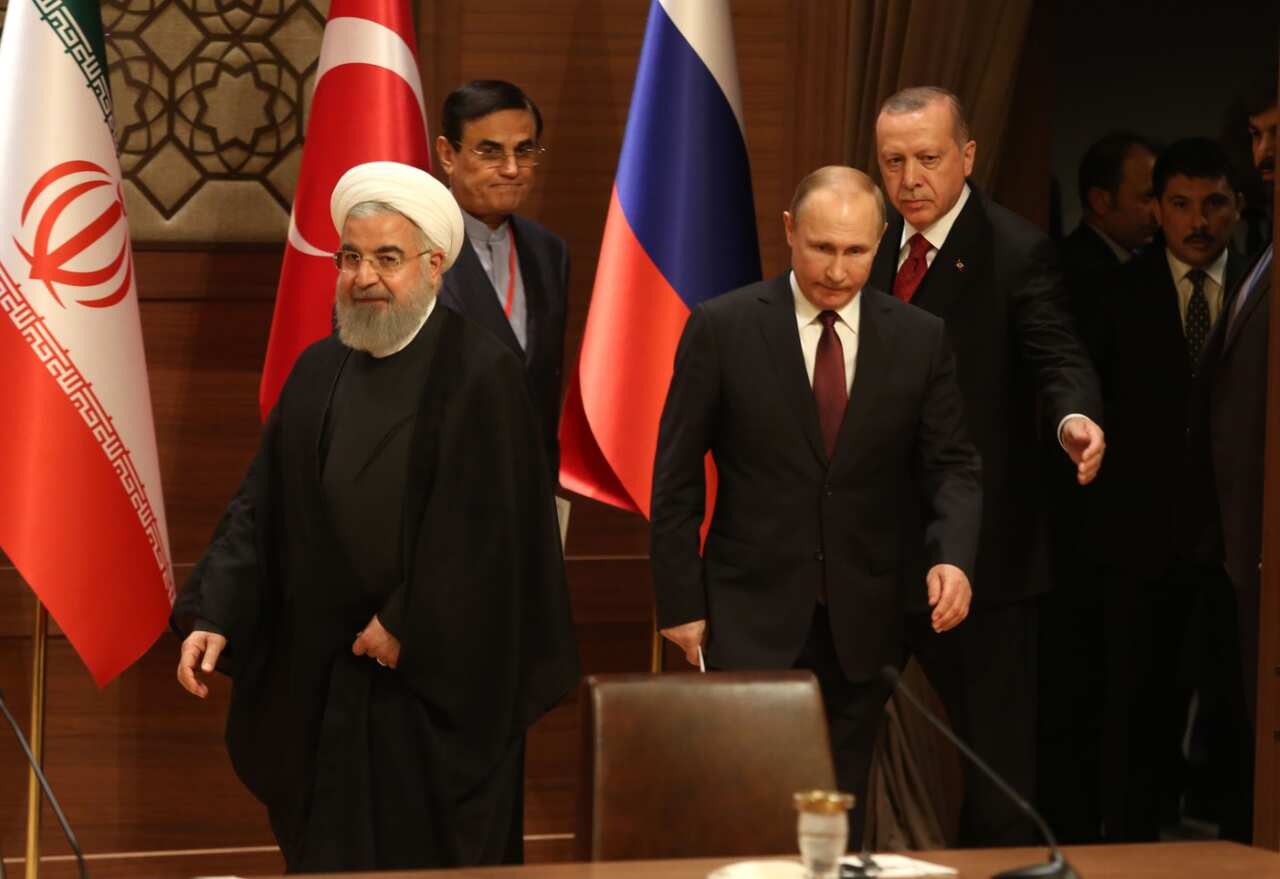US President Donald Trump has agreed in a National Security Council meeting this week to keep US troops in Syria a little longer to defeat Islamic State but wants them out relatively soon, a senior administration official says.
Trump did not approve a specific withdrawal timetable at Tuesday's meeting, the official said. He wants to ensure IS militants are defeated but wants other countries in the region and the United Nations to step up and help provide stability in Syria, the official said.
"We're not going to immediately withdraw but neither is the president willing to back a long-term commitment," the official said on Wednesday.
Trump had signalled his desire to get US forces out of Syria in a speech last Thursday in Ohio, and officials said he had privately been pressing for an early withdrawal in talks with his national security aides.
Trump told a news conference on Tuesday with Baltic leaders that the US was very successful against IS but that "sometimes it's time to come back home".
His advisers have been urging him to maintain at least a small force in Syria to ensure the militants are defeated and to prevent Syrian President Bashar al-Assad's ally Iran from gaining an important foothold.
The US is waging air strikes in Syria and has deployed about 2000 troops on the ground, including special operations forces whose advice has helped Kurdish militia and other US-backed fighters capture territory from IS, also known as ISIS.
The White House said in a statement on Wednesday the US military mission to eradicate IS "is coming to a rapid end, with ISIS being almost completely destroyed.
"The United States and our partners remain committed to eliminating the small ISIS presence in Syria that our forces have not already eradicated," it said, urging countries in the region and the United Nations to help ensure that "ISIS never re-emerges".
US Army General Joseph Votel, who oversees US troops in the Middle East as the head of Central Command, estimated on Tuesday that more than 90 per cent of the group's territory in Syria had been taken back since 2014.
In the National Security Council meeting, Trump made clear that he did not want to stay in Syria for a lengthy period. The senior official said the impression Trump left was that he would like to withdraw in a year or less.
Brett McGurk, the US special envoy for the global coalition against IS, on Tuesday said the US fight against the militants was not over.
"We are in Syria to fight ISIS. That is our mission and our mission isn't over and we are going to complete that mission," McGurk said.
Turkey, Russia, Iran urge 'lasting ceasefire' in Syria
The presidents of Iran, Turkey and Russia vowed to work for a lasting ceasefire after over seven years of civil war in Syria, following a summit aimed at boosting both peace prospects and also their influence in the country.
Turkish President Recep Tayyip Erdogan, Iran's Hassan Rouhani and Russia's Vladimir Putin reaffirmed their commitment to cooperating for "the achievement of a lasting ceasefire between the conflicting parties", a joint communique said.

The meeting in Ankara was the second such tripartite summit after the first hosted by Putin in November in the Black Sea city of Sochi, in a new symbol of an increasingly deep cooperation.
However there was no major breakthrough announced after the summit meeting, and comments by the trio indicated possible tensions in what analysts see as a potentially brittle alliance.
The three powers have backed peace talks in the Kazakh capital Astana, which they argue are a parallel process to UN-supported discussions in Geneva.
Erdogan insisted their meetings and the Astana talks were not an "alternative" to the Geneva process to find peace in Syria, at a post-summit press conference.
But the three presidents said that so far, "the Astana format had been the only effective international initiative that had helped reduce violence across Syria and had contributed to peace and stability".

